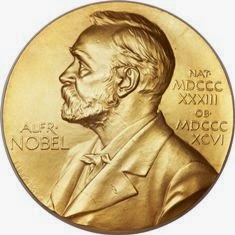The merits and demerits of awards and rewards system, has been debated in all societies, especially in the field of science where it act as a double edged weapon. In my personal case, immediately post PhD, I received the INSA Young Scientist Award, along with Manju Bansal, student of Prof. G. N Ramachandran. This kept me back in India to pursue science. I understand that very large percentage (~75%) of INSA Young Scientist medal recipients have stayed back in India to pursue science, many of whom (98 out of 708 since 1974) have been eventually elected as the fellows of the Indian National Science Academy. Statistics shows clearly that early recognition acts as a motivator.
Later during 1990, I was thinking of moving to USA to participate in the Human Genome Project (HGP) at the Berkeley Lawrence Livermore lab, on the invitation of Prof. Charles Cantor, who had moved from Columbia University, New York to Berkeley. Realizing that neither Government of India nor Indian Institute of Science will be able to support my participation in HGP, I decided to move away to the ‘land of opportunity’. But the destiny spelled otherwise. On this day (26th Sep) in 1990, when I was 38 years old, the then DG, CSIR announced the list of winners of the Bhatnagar Award in which my name appeared. Receiving this recognition created a huge sense of responsibility which got firmed up by the innumerable letters and personal wishes I received. This single event made me think about the fairness of me leaving India when the country has recognized whatever little science I have done. And that dissuaded me from accepting the offer.
In my long scientific journey I have seen how aspirations for recognitions lead to distortion of scientific behavior. I have seen young and senior scientists lose their ethical values in pursuing science. The purpose of science gets converted to that of chasing awards. It is funny that every single award in scientific system in India increases the probability of a subsequent award. Therefore, while on one hand, it is very important to recognize scientists and treat them as heroes in the eyes of the public; simultaneously it is also important that the entire objectivity of selecting such individuals is not lost in patronizing loyalty above merit.
I was very fortunate to have been elected to all the four science and engineering academies of India, at a reasonably young age. This indeed has kept me motivated to pursue science at a higher level. Unfortunately we have not guided our younger generation of researchers that pursuing science as a hobby with a purpose in mind is far more enjoyable than target oriented chasing of rewards and recognitions.
Therefore while scientific awards have done a significant amount of good to the Indian scientific community both financially and otherwise, they have also created distortion in the system where receiving an award has become a mandate.
Today I salute those who have been conferred the prestigious Shanti Swarup Bhatnagar Prize for their accomplishments, but only to remind them that any recognition of the nation brings with it, larger level of responsibility and expectations from the society. While this award is given for individual excellence, one should remember that it also acts as a deterrent to collaborative efforts. As we have moved into this century, collaborative research has become centre stage of the interface of science. Simple discoveries like Graphene, for which two individuals could be given Nobel Prize, I wonder why for the same work done collaboratively by two young scientists, the Indian Nobel Prize cannot be shared. I feel our award committees should recognize collaborative research and credit multiple collaborators or individual researchers for achieving a scientific milestone, which is world recognizant. Very often it is debated as to how award and recognitions often goes to few who are already awarded and rewarded substantially and collaborative research is missed out. Therefore democratization and wide spread distribution of awards and rewards will take Indian science a long way. It is more true when 500 ISRO scientists working together for 18 months have achieved an impossible feat like Mission to Mars (Mangalyaan) in the maiden effort to make India proud, clearly indicating the power of many over individuals.

Lesson from life’s experience
I would like to express my life’s lessons at the end of this blog, through some quotable quotes by Nobel laureates:
“Discovery consists of looking at the same thing as everyone else and thinking something different.”
― Albert Szent-Györgyi
“It is open to every man to choose the direction of his striving; and also every man may draw comfort from Lessing's fine saying, that the search for truth is more precious than its possession.”
― Albert Einstein
“……………..Before they can secure possible working conditions, scientists have to exhaust their youth and their powers in daily anxieties. Our society, in which reigns an eager desire for riches and luxury, does not understand the value of science. It does not realize that science is a most precious part of its moral patrimony. Nor does it take sufficient cognizance of the fact that science is at the base of all the progress that lightens the burden of life and lessens its suffering. Neither public powers nor private generosity actually accord to science and to scientists the support and the subsidies indispensable to fully effective work.”
― Marie Curie
Although in pre-independent India, Indian scientists were receiving the best salaries in the British Raj (Reference: In Pursuit of Excellence: A History of the Indian Institute of Science by B V Subbarayappa) what Madame Marie Curie said, was true for the scientists in post-independent India. It is only in the recent years that things have started to change. However, in order to attract the best minds to this noble profession of science, one need to truly recognize, reward and award those men and women of science who make discoveries that lighten the path of millions.
SKBlog-06

%2Bmodified.jpg)



Comments
Post a Comment